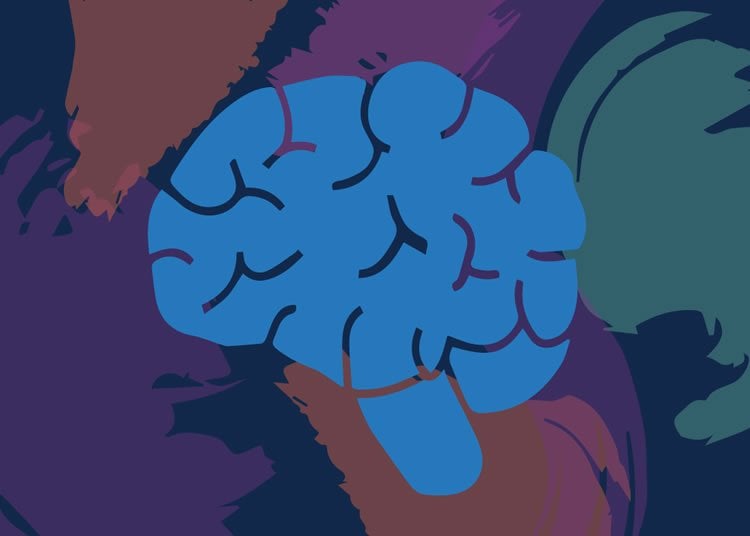Summary: Adults with ADHD feel empowered performing creative tasks that can help them with a job, researchers report.
Source: University of Michigan.
People often believe those with Attention Deficit Hyperactivity Disorder face challenges that could hinder future employment, but a University of Michigan study found that adults with ADHD feel empowered doing creative tasks that could help them on the job.
The tendency of individuals with ADHD—a mental disorder commonly diagnosed at childhood—to resist conformity and ignore typical information may be an asset in fields that value innovative and nontraditional approaches, such as marketing, product design, technology and computer engineering, said study author Holly White, a researcher in the U-M Department of Psychology.
White studied a group of college students with and without ADHD who were compared on lab tasks of creativity. The imagination task allowed a person to invent a new example of a common category that is different from existing examples. In the “alien fruit” invention task, a person must create an example of a fictional fruit that might exist on another planet but is different from a fruit known to exist on Earth.
In doing this task, non-ADHD participants often modeled their creations after specific common fruits—such as an apple or strawberry. Those creations were less innovative, White said.
In this study, participants with ADHD created “alien fruits” that differed more from typical Earth fruit, and were more original, compared to non-ADHD participants.
The second task required participants to invent labels for new products in three categories without copying the examples provided. The ADHD group created labels that were more unique and less similar to the examples provided, compared to the non-ADHD group.

White said the results suggest that individuals with ADHD may be more flexible in tasks that require creating something new, and less likely to rely on examples and previous knowledge.
“As a result, the creative products of individuals with ADHD may be more innovative, relative to creations of non-ADHD peers,” she said.
Individuals with ADHD may be less prone to design fixation, which is the tendency to get stuck in a rut or stick closely to what already exists when creating a new product, White said.
“This has implications for creative design and problem solving in the real world, when the goal is to create or invent something new without being overly constrained by old models or ways of doing things,” she said.
Source: Holly White – University of Michigan
Publisher: Organized by NeuroscienceNews.com.
Image Source: NeuroscienceNews.com image is adapted from the University of Michigan news release.
Original Research: Abstract for “Thinking “Outside the Box”: Unconstrained Creative Generation in Adults with Attention Deficit Hyperactivity Disorder” by Holly A. White in Journal of Creative Behavior. Published September 30 2018.
doi:10.1002/jocb.382
[cbtabs][cbtab title=”MLA”]University of Michigan”Thinking Outside the Box: ADHD Adults Not Constrained in Creativity.” NeuroscienceNews. NeuroscienceNews, 11 October 2018.
<https://neurosciencenews.com/creativity-adhd-10004/>.[/cbtab][cbtab title=”APA”]University of Michigan(2018, October 11). Thinking Outside the Box: ADHD Adults Not Constrained in Creativity. NeuroscienceNews. Retrieved October 11, 2018 from https://neurosciencenews.com/creativity-adhd-10004/[/cbtab][cbtab title=”Chicago”]University of Michigan”Thinking Outside the Box: ADHD Adults Not Constrained in Creativity.” https://neurosciencenews.com/creativity-adhd-10004/ (accessed October 11, 2018).[/cbtab][/cbtabs]
Abstract
Thinking “Outside the Box”: Unconstrained Creative Generation in Adults with Attention Deficit Hyperactivity Disorder
Creative generation is structured around existing knowledge and task examples, yet overreliance on specific examples may limit imagination (Ward, T. B., Finke, R. A., & Smith, S. M., 1995). The constraining influence of knowledge during creative generation may be offset by conceptual expansion, a process of thinking outside traditional conceptual boundaries, which may be heightened by distractibility and mild executive dysfunction (Abraham, A., Windmann, S., Daum, I., & Güntürkün, O., 2005). The present study explored the constraining effects of knowledge in adults with Attention Deficit Hyperactivity Disorder (ADHD), a disorder characterized by impaired attention and inhibitory control (Barkley, R. A., 1997). College students with and without ADHD were compared on two creative generation measures: an alien fruit invention task that required participants to imagine fruit that might exist on another planet (Ward, T.B., 1994), and a product label invention task wherein the goal was to invent product names without using elements of task examples (Kray, L.J., Galinski, A.D. & Wong, E.M., 2006). ADHD participants created alien fruit that diverged more from Earth fruit and labels that conformed less to examples, relative to non‐ADHD peers. Results suggest that adults with ADHD may be less constrained by knowledge during creative generation. Findings are discussed in terms of theoretical import and practical implications for individuals with ADHD.






